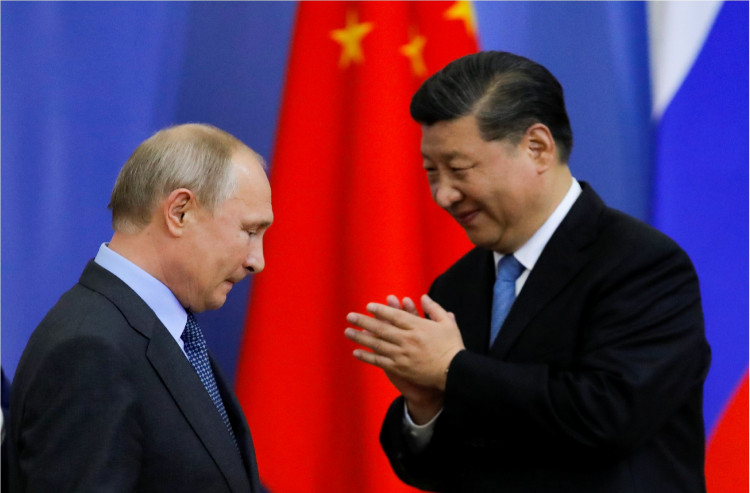Russian President Vladimir Putin has delivered a pointed rebuke to the West, emphasizing the alignment between Russia and China on a new world order. This comes as Putin prepares for a significant state visit to Beijing, marking his first international trip since beginning his fifth presidential term last week.
In an extensive interview with China's state news agency Xinhua, Putin asserted that both Russia and China share "similar or coinciding positions" on key geopolitical issues. He accused "western elites" of provoking global instability, specifically pointing to the war in Ukraine as a manifestation of these policies. "Today's global shocks have been provoked precisely by [the west's] policies," Putin remarked, referencing the invasion of Ukraine.
Putin's visit to Beijing includes talks with Chinese President Xi Jinping, who has consistently advocated for a "multipolar" world order, reducing the dominance of the U.S.-led West. The Russian leader praised China's approach to international law, criticizing Western attempts to impose "mythical rules" that lack universal legitimacy.
The timing of this visit is particularly notable as it coincides with the U.S. State Department's decision to move a $1 billion weapons aid package for Israel into the congressional review process. This geopolitical maneuvering highlights the contrasting alliances and strategies at play on the global stage.
China has maintained a delicate stance on the Ukraine conflict, refusing to condemn Russia's invasion while advocating for a ceasefire and cautioning against the use of nuclear weapons. Beijing's 12-point position paper on the Ukraine crisis has largely echoed Russian talking points, calling for de-escalation and addressing Russia's security concerns without demanding a Russian withdrawal.
Putin lauded the "realistic and concrete steps" in China's peace plan, suggesting they could form the "foundation of a political-diplomatic process" that ensures a stable peace. He further indicated that the main hurdle to future negotiations lies in securing reliable guarantees for both Ukraine and Russia, implying a significant role for China in any resolution.
Despite his strong rhetoric, Putin did not reiterate recent veiled threats regarding the potential use of nuclear weapons. Xi Jinping had personally cautioned Putin against such actions during a visit to Moscow last year.
Western leaders have expressed skepticism about China's purported neutrality, suspecting that China's economic support, including trade in engines and machine tools, indirectly aids Russia's war effort. Nevertheless, Beijing has insisted it is not supplying weapons to Russia, a stance that Western powers continue to scrutinize.
In his interview, Putin reiterated Russia's willingness to engage in dialogue, blaming the West for the breakdown of talks at the onset of the conflict. He emphasized the importance of building a new international order based on alliances independent of Western influence, citing the Shanghai Cooperation Organisation (SCO) and the BRICS group as pivotal in this emerging multipolar world.
The SCO includes Russia, China, several Central Asian countries, India, Pakistan, and Iran, while BRICS encompasses Brazil, Russia, India, China, and South Africa, with recent additions like Iran, Egypt, Ethiopia, and the United Arab Emirates. "We have actively contributed to launching multilateral associations and mechanisms that are independent of the West and are successfully operating," Putin stated, highlighting cooperation in fields such as space exploration, nanotechnology, nuclear medicine, and biotechnology.






